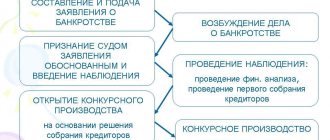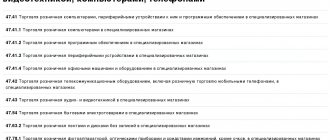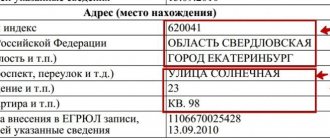Unauthorized trade (article of the Code of Administrative Offenses) – sale of goods or food products outside the premises:
- from cars, trailers;
- from self-installed tents;
- from trays directly on the ground, sidewalks, along roads.
Pensioners, migrants, and illegal entrepreneurs are engaged in unauthorized trade. Unauthorized street trading in an unspecified location creates a negative image of the city, litters the territory, and is conducted in violation of sanitary standards.
What is meant by illegal trade?
Illegal trade has several distinctive features. It is done systematically. A one-time transaction for the sale of goods does not violate any laws. Trade that is carried out on an ongoing basis without paying taxes and keeping records will be considered illegal. It is worth noting that some products can be traded without registration.
Illegal trade in cigarettes
Illegal trade also means the sale of goods that have the following features:
- incite hatred
- prohibited by law
- violate copyright
- require licensing
Illegal trade is carried out through various platforms. This could be selling various goods directly on the street or selling products via the Internet. People know that selling without registering a business is prohibited. They engage in illegal trade at their own peril and risk.
Trade permit: is it necessary?
A permit for street trading by an individual must be obtained if it is carried out at a stationary point. That is, if the seller is in a certain place, his goods are also located there. Such trade is not allowed everywhere, but only in certain places in cities and villages. For this purpose there are special trading places allocated there. You can obtain information about them from your local government.
Activities such as vehicle trading and street peddling are legally prohibited. However, they still occur. Door-to-door selling by door-to-door salesmen does not require any permission, and more and more sellers are trying to resort to it, given the reduction in retail space in cities. Moreover, sometimes it is no less profitable than trading from the counter. The same can be said about trading based on an ad.
Most trade transactions between two individuals can be carried out without restrictions if permitted.
Responsibility for illegal trade
The responsibility he will bear depends on the law that a person has violated. For trading without registration, a person will receive punishment in accordance with Art. 14.1 AK. You will need to pay a fine of 500-2,000 rubles. The protocol is usually drawn up by the police or Tax Service officers who discovered the offense. A huge number of people are engaged in entrepreneurship without registration.
It is worth noting that when large profits are made, administrative liability can develop into criminal liability. In accordance with Art. 171 of the Criminal Code, an entrepreneur who, through unregistered trade, has generated income in excess of 250 thousand rubles, pays a fine of up to 300 thousand rubles or is subject to arrest for up to 6 months.
Criminal penalty
If an individual entrepreneur or LLC conducts business without tax registration, then in accordance with Art. 116 of the Tax Code, you will need to pay a fine of 10 thousand rubles, as well as 10% of your earnings. If the business has been registered, then first of all you need to start keeping tax records to avoid penalties.
Selling drugs or products harmful to human health can result in serious penalties. For example, for selling narcotic drugs a person is sent to jail for 7-15 years.
Every entrepreneur should be aware of the responsibility that he will bear in case of violation of laws. Under no circumstances should criminal laws be violated. The punishment for any crime provided for by the Criminal Code is much harsher. Large fines are paid or the person is sent to prison.
Who controls illegal trade and can issue a fine?
Penalties for selling goods in the wrong place without a special permit can be imposed by inspectors of the Federal Tax Service, as well as specialists from the Federal Service for the Protection of Consumer Rights and law enforcement officers.
In large cities, street trading is strictly prohibited and is suppressed by representatives of the law. As a rule, the fight against illegal immigrants is carried out through the installation of permanent video surveillance cameras, which make it possible to impose fines on its organizers for unauthorized trading in prohibited places.
Sanctions in 2020 include food stalls that operate without registering as individual entrepreneurs and violate sanitary standards, retail outlets located near roads and markets, as well as sellers who do not have documents and sell goods from cars.
How are offenders identified?
People often ask questions about how illegal traders are identified. The search for offenders is carried out by:
Police check
- police officers
- Tax Service employees
- Rospotrebnadzor employees
- caring people
The greatest attention is paid to violators who hide large profits or sell prohibited goods. People who have started selling permitted products that do not require licensing rarely become targets of the Federal Tax Service or the Police.
Offenders are identified by the accounts they maintain and their actions. If a person purchases an expensive item, but is not employed or his income is not enough to purchase this type of product, then the Tax Service will definitely check it. It will be revealed where the funds came from. If a person cannot explain their origin, he will be held accountable.
Illegal sale of goods
The most common violation is the sale of goods in the absence of special status. A person who regularly engages in trade must open a legal entity or obtain the status of an individual entrepreneur.
There are some exceptions to the rule. For example, you can sell your personal belongings without opening an individual entrepreneur. This does not relieve a person from tax obligations if the activity has generated profit. It is also allowed to sell surplus from a personal plot (but in specially designated areas).
It is not difficult to obtain entrepreneurial status. You just need to register. If we are talking about an individual entrepreneur, then you don’t even need an office. An individual entrepreneur is a simple individual who has received permission to regularly make a profit through a specified activity.
You should choose the right OKVEDs - special codes that determine the types of permitted activities. Don't be afraid to add extra ones - there can be as many as you like. There is no danger, there is no additional reporting until the activity is actually carried out.
How is the amount of fines determined?
The legislation does not specify the exact meaning. There are only upper and lower boundaries. The size is determined by the court. The fine for violation of administrative legislation is determined by the magistrate. The fine for violating criminal law is determined by the district judge.
When setting a fine, many aspects are taken into account. The final decision will depend on the severity of the offense. A person can challenge a court decision by reducing the amount of the fine or canceling it altogether, but to do this, they need to provide a lot of evidence.
What penalties for illegal trade are provided for by law?
Depending on the specific offense, the amount of the fine can vary greatly. For example, the Code of Administrative Offenses provides for several possible penalties. Among them are:
Imposition of fines
- Engaging in business without registration - a fine of 500-2,000 rubles.
- Individual entrepreneur selling goods that require licensing without a license - a fine of 2,000-2,500 rubles with confiscation of the manufactured goods; if we are talking about an LLC without a license, then the amount of fines ranges from 40 to 50 thousand rubles with confiscation of all products.
- Conducting a business as an individual in violation of the requirements set forth by law, license or other document - a fine of 1,500-2,000 rubles; as a legal entity - from 30 to 40 thousand rubles.
It is worth noting that companies that are registered as legal entities pay much more in case of violation of the law.
In order not to go broke paying fines, you must comply with the law. If you receive a false accusation of violations, you need to defend your interests in court. To do this, you will need to carefully study the legislation. If you don't have time for this, you will need to hire a lawyer to resolve the problem.
What liability comes with illegal trade?
The creation of an individual entrepreneur obliges a citizen to maintain strict reporting on the activities he carries out, submit income declarations to the tax service, transfer cash contributions to the Pension Fund and the Social Insurance Fund, and also pay a certain tax rate for the profit he receives.
Such aspects may be disadvantageous to individuals running a small business and whose income is extremely low. That is why, quite often in practice, many citizens, for example, those selling on the street, do not have the appropriate permission to sell goods.
In this situation, the offender is given a certain punishment for illegal trade. There are 3 types of responsibility:
- administrative;
- tax (in the absence of business registration, if such a condition was necessary in accordance with the requirements of the law);
- criminal (assigned if the citizen’s profit was more than 1,500,000 rubles).
In some cases, registration of an individual entrepreneur is not required; it is enough to obtain the appropriate permit to carry out trade. For example, to sell flowers at a street market, a citizen only needs to enter into an agreement with the manager of this commercial establishment.
The provision of services or trade in goods is considered unlawful:
- violating copyrights;
- harmful or offensive to morals;
- declared illegal;
- promoting discrimination against individuals;
- which are sold without proper registration of the entrepreneur or permission to sell licensed goods.
We recommend reading : Fines for smoking in a public place.
How to avoid getting a fine
To avoid receiving fines and other unpleasant punishments for offenses, you need to carefully study the legislation. You will need to understand what requirements are put forward to the entrepreneur.
Individual entrepreneur registration process
Any business begins with choosing a form of ownership and registration. You will need to register your activities as an individual entrepreneur or LLC. To do this, you need to contact the Federal Tax Service. Next, you need to find out whether licensing is required. You can find the necessary information in the Federal Law “On licensing of certain types of activities.”
When working directly, it is necessary to comply with the standards put forward by the tax service, Rospotrebnadzor and other authorities. If a person violates their requirements when conducting business, he will be required to pay a fine. Only compliance with the laws will help you avoid receiving penalties.
What are the responsibilities?
Violation of current legislation entails the application of sanctions. The specific punishment depends on the type and severity of the violation:
- Trading without the status of an individual entrepreneur or not on behalf of a company is punishable on the basis of Article 14.1 of the Code of Administrative Offenses of the Russian Federation. Fine – from 500 rubles to 2000 rubles.
- Lack of a license or permit – paragraph 2 of Article 14.1 of the Code of Administrative Offenses of the Russian Federation. Fine – from 2500 rubles with confiscation of manufactured products. Officials and firms will receive a heavier fine.
- If the act caused major damage to citizens and legal entities, or led to the receipt of large income, Article 171 of the Criminal Code of the Russian Federation is applied. Fine – from half a million rubles, compulsory labor or arrest for up to six months.
Sanctions for trading in unauthorized places are determined by the legislation of the region in whose territory the offense is being committed. This is usually a fine ranging from several hundred to several thousand rubles.
For more information about what liability is provided for illegal business activities, read this article >>
How can you challenge a fine?
The fine can only be challenged in court. You will need to provide as much evidence as possible. For example, if a person is accused of trading without a license, then he will need to prove that there was no sale or the products were not sold on an ongoing basis.
It is extremely difficult and not always advisable to defend your interests on your own. If a person really broke the law, then it is almost impossible to prove otherwise. Lawyers or attorneys can help you file a complaint with the court. It is worth noting that each fine has its own terms for challenging.
Illegal business activity is not the best choice for a novice businessman. Basic legal regulations must be followed in order for the business to develop and expand. Trading goods in small quantities without registration will not entail large fines. However, you should understand that such a business will never grow into something more.
If a person earns a lot of money from selling goods, then the police or tax service will definitely find him. After this he will be brought to justice. The larger the offense, the harsher the punishment.
Top
Write your question in the form below
What should an “entrepreneur” do if the responsible authorities have drawn up a protocol in his regard?
After the imposition of penalties for the illegal sale of goods, the person in respect of whom the protocol was drawn up should promptly make payment in accordance with the document. The fine is paid depending on the department that issued it, in any convenient way.
For example, sanctions imposed by the Federal Tax Service can be paid:
- in the bank;
- in the taxpayer’s personal account;
- on State Services;
- using your online banking details.
Late payment of a fine issued by a tax inspector threatens to increase its size due to the accrual of penalties. To gain access to the taxpayer’s personal account for payment, the violator should contact the Federal Tax Service. If you deposit funds through other services, it is important to accurately indicate the recipient's details.
Administrative sanctions can be paid in the same ways as tax sanctions, as well as through Russian post offices. Failure to pay this type of fine may result in its doubling, arrest for up to 15 days, or forced labor for up to 50 hours.
Sanctions imposed in the framework of a criminal case are imposed in accordance with the recommendations given to the offender in the court. The court must provide details to which the convicted person must transfer funds within a specified period.
How to obtain and issue a permit
You can obtain permission to trade from local authorities or from the market where you plan to trade. It is usually required for selling from a counter. The issuance of permits is carried out by the head of the market or an authorized person, as well as the head of local government personally or his authorized person. In this case, it must be agreed where trading will take place and at what time of the day, as well as the duration of the contract and the person responsible for control over the sellers, who can impose restrictions on them in case of violation, including stopping trading altogether.
Permission must be provided in writing. Usually for market traders it is written for a period of one day, during the market. For other street vendors, the permit may have a different validity period.
To obtain a permit from your local government, you need to find out who issues them. In a small village, this is the head of the administration himself. In the city, this is handled by the trade committee, the deputy mayor for trade, and the district or microdistrict administration. Typically, in this case, a long-term permit to trade in manufactured goods is obtained.
To trade products you usually have to go to the market. If there are free places for trading at the market, you can come and occupy them before the market starts. When opening, the director or deputy will visit you, and after a conversation with him, he will issue a permit. In order not to take risks without permission to trade, it is better to approach the market director in advance and get a written document.
When checking by a police squad, employees of the SES or other government bodies, it must be presented upon request, after checking the ID with the inspector. Police officers and the person responsible for the operation of the market have the right to immediately stop trading, other services - only after the permission is revoked.
What can they be fined for?
Each citizen had to make transactions aimed at generating income - selling things through advertisements or through personal connections, performing minor repairs on equipment, etc.
This does not mean that earning money can be considered a business activity requiring registration. Moreover, generating income or profit is also not a mandatory feature of entrepreneurship, but only its goal.
A sign of entrepreneurship is the desire to receive regular income from one’s activities. To do this, a citizen registers an individual entrepreneur, and the company is registered as a legal entity. Confirming documents for the legal implementation of business activities, including opening and maintaining a retail outlet, is an extract from the Unified State Register of Individual Entrepreneurs (for individual entrepreneurs) or the Unified State Register of Legal Entities (for enterprises), as well as
.
Download
Failure to register an individual entrepreneur when conducting trade will be considered an administrative offense according to the following rules:
- systematic trading activity - can be carried out in any form: remote sale of goods via the Internet, opening your own store or distribution network, selling products through agents, etc.;
- the fact of making a profit, as well as its size, do not matter for the imposition of a fine under Art. 14.1 of the Code of Administrative Offenses of the Russian Federation - if an open retail outlet offered goods for sale, punishment will follow even if there is zero sales;
- the offender must actually begin trading, i.e. create conditions for the purchase of goods by any interested party - equip the premises, place advertisements, display goods on shelves indicating price tags, conclude a rental agreement, etc.
Note! The offense is considered completed if the goods could actually be purchased by any interested person. If a citizen has fully equipped the store for trading purposes, but has not started sales, no punishment will follow.
One-time or ongoing trade in markets or other equipped areas is not considered illegal entrepreneurship if the goods are produced by the personal labor of a citizen (vegetables and fruits, handicraft items). However, even such income is subject to declaration at the end of the calendar year - for late submission of a declaration, evasion of filing documents, or for understating income will be subject to independent punishment under the Code of Administrative Offenses of the Russian Federation .
Is it possible to trade on the market without an individual entrepreneur?
In our country, a significant number of citizens work at various enterprises where an employment contract is drawn up. This agreement is necessary in order to regulate and establish the rights and certain obligations of the parties.
But many citizens do not want to be dependent on someone and engage in trading activities in the market. In order to be independent and run your own business, you can start self-employment.
To do this, a citizen will initially need to choose the optimal legal form for himself and begin to engage in a certain type of activity.
Who can engage in trading activities on the market?
Now there is a large choice for citizens who want to run their own business and be individual entrepreneurs who do not depend on enterprises and managers.
At the same time, every citizen of our country has a completely legal right to engage in the activities that he likes most.
In this matter, it will be necessary to understand that for certain types of activities, according to the current rules and regulations of the law of our country, a special license may be required, which will need to be obtained in a strictly defined manner.
In addition to all this, the legal assignment of a certain citizen to an occupation that he will directly engage in in his business activity has a certain procedure established by the current norms and rules of the legislation of the Russian Federation.
This and many other points will need to be taken into account if you are planning to engage in a certain type of activity as an entrepreneur.
Now in our country, a very common type of business activity, which is engaged in by a significant number of citizens, is trading activities in the market.
Any citizen of our country has seen how many different retail outlets exist today that offer the purchase of certain goods and services.
It is important to understand that if you are planning to start an individual business, there is a lot of competition in this area.
Therefore, before starting your journey as an entrepreneur, it is recommended that you familiarize yourself in advance with the existing features and nuances of your chosen type of activity.
If you have certain difficulties or questions that are directly related to trading activities on the market, then you simply need the advice of a lawyer or lawyer. This will greatly help you save your own time in obtaining permits.
All these nuances must be taken into account and all required permits and documents must be in hand.
Features of trading activities in our country
Many citizens of our country who decide to engage in certain trading activities in the market have a significant number of questions and difficulties.
Many people do not know or understand certain nuances, and also do not have up-to-date information that allows them to obtain all the necessary documents and permits on a completely legal basis.
Supervision of street trading
If there is a food market in your area, then by law it must have free places for citizens to sell products from their personal plots. Usually there are few such places, and to occupy them you need to come to the market very early. If there are no free seats, you can take a paid place for trading. The market administration has the right to exercise control over the quality of goods and require a document certifying that the seller has a subsidiary plot.
This document is an extract from the book of private household plots (personal subsidiary plots), obtained from the local administration, or from the book of a gardening partnership, in accordance with Federal Law 112.
Products can be sold from a farm whose area is no more than half a hectare, unless local legislation stipulates otherwise, and also only if hired labor was not used for production. An extract from the book contains data on the amount of total and sown area, the availability of mechanization equipment, the number of domestic animals and poultry. Accordingly, crop and livestock products can be sold.
There are also a number of additional rules and regulations for the sale of livestock products. For example, poultry carcasses and meat must have a mark certifying that they have passed sanitary control before reaching the counter, and must be stored under certain conditions. For fish, a similar procedure also exists, but it is more complicated, and therefore the fish is often sold illegally.
Any government supervisory authorities have the right to inspect street retail outlets. Usually these are SES, Fire Supervision, Electricity Networks, Vodokanal, Traffic Police, and police. After presenting the identification, the seller is obliged to stop trading and provide them with the counter and everything on it for inspection. Claims may be made about the condition of the product, the counter, and even the dirty hands of the seller.
Carrying out trade without registering an individual entrepreneur
Entrepreneurial activity is considered to be the actions of a certain individual that give him profit from the use of tangible assets, the sale of goods and the provision of services.
Concept and main aspects of entrepreneurial activity
The concept of “entrepreneurship” includes:
- trade;
- monitoring;
- consulting activities;
- development of technical data;
- creation of intangible data (programs, applications), etc.
Anyone wishing to sell goods or provide services is required to register their activities and submit all statements to the tax service. Without implementing this procedure, any actions for the purpose of making a profit can be considered illegal.
Despite the fact that the procedure for registering an individual entrepreneur (individual entrepreneur) is quite simple and does not require a large package of permits, many novice businessmen ignore all legislative acts and prefer to engage in business activities illegally in the domestic market. But as practice shows, by not paying taxes you can save personal funds only in the first months of work. After some time, the “thrifty” entrepreneur will be subject to fines as a result of a scheduled or unscheduled audit, the amount of which is several times higher than tax deductions.
The essence of illegal trade
In reality, many citizens want to sell or provide services without registration. Such persons can be classified as “illegal traders”.
Trade without individual entrepreneur registration includes:
- products, services declared illegal on the market;
- products, services that violate elements of copyright;
- sale of products that declare discrimination (based on race, gender or ethnicity);
- products on the market that contradict elements of morality;
- sale of licensed products or services without registration as an individual entrepreneur, LLC or JSC.
When selling unlicensed products, in some cases the law allows not to register the legal form. In such cases, you can obtain permission to conduct activities from the administration of the market/shopping center (for example, selling flowers).
But in most cases, you will still have to register an individual entrepreneur. Experts recommend starting any activity with this aspect, since liability for violation can be considered very strict. In addition to paying fines, the businessman faces administrative, tax and criminal liability. What fines await dishonest businessmen? Let's look at these parameters in more detail.
Administrative responsibility
The Administrative Code of the Russian Federation defines the following level of penalties:
- for conducting trading activities without registering an individual entrepreneur in the market or on the territory of a shopping center - a fine of 500 - 2000 rubles. (for example, selling coffee on the street);
- conducting trading activities without a license - a fine of 2,000 to 50,000 rubles, as well as complete confiscation of trading property, raw materials, equipment (for example, illegal sale of tobacco products, alcoholic beverages);
- business with clear signs of violation of the terms of the license agreement - from 1,500 to 40,000 rubles;
- gross violation of the license agreement – from 4,000 to 50,000 rubles. with a ban on trading activities for up to 3 months.
Activities that are based on the periodic receipt of income from the use of tangible assets, sales of products on the market, provision of services and performance of various types of work are subject to administrative violation.
In this statement, you can pay attention to two concepts - “frequency” and “income generation”. Conducting periodic business activities means selling services or products two or more times a year.
If you once performed a certain range of work, provided a service or sold material value, this does not apply to the concept of entrepreneurship and excludes fines.
Taking this into account, individual cases of sales of products or services by a person who is not registered as an individual entrepreneur do not give rise to an administrative offense. At the same time, the volume of products in the warehouse, the product range, the fact of the provision of services should not indicate that any actions were aimed at maximizing income.
If the dispute is considered in court, a fact that would confirm the business activity is the testimony of persons who paid for the services provided or products purchased, receipts for the movement of financial assets, bank account statements, and sales deeds. Also taken into account is the documentation provided to the court, which indicates the placement of commercial advertisements, the exhibition of samples in possible retail locations, the purchase of raw materials or products, and the signing of a lease agreement.
Other regulations indicate facts that indicate signs of entrepreneurship:
- production or purchase of tangible assets for the purpose of further obtaining income from sales;
- report of financial transactions related to the signing of transactions;
- the relationship between transactions carried out by the suspect over a certain period;
- the fact of the presence of permanent connections, financial interests between sellers, buyers, intermediary firms and other counterparties.
Criminal liability
This concept is regulated by the Criminal Code of the Russian Federation.
Recommendations: in order to avoid the “legislative bait”, do not forget about the criminal liability that comes with conducting illegal trading activities.
The following are subject to criminal liability:
- persons over 16 years of age;
- persons who are engaged in trade or provision of services without the appropriate registration form,
- persons without a license in areas of trade that require this registration.









